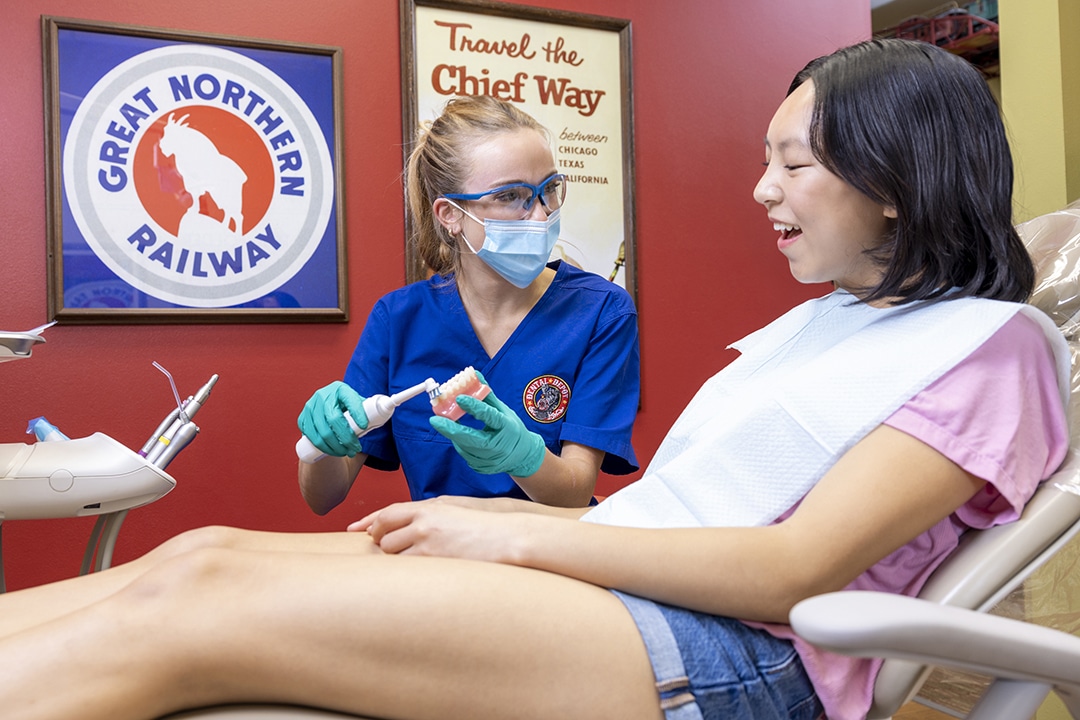Wisdom teeth, which are the final set of molars, typically emerge between the ages of 16 and 22 and are located at the very back of the mouth, completing the set of 32 teeth that every adult has. However, they are often removed soon after they start to develop. The appearance of wisdom teeth is often accompanied by an unpleasant taste in the mouth, swollen, bleeding, or sensitive gums, pain or swelling in the jaw, or difficulty opening the mouth. Although some individuals experience no issues with their wisdom teeth regarding oral health or function, they can lead to discomfort, pain, swelling, and crowding for many people, necessitating their removal.

The removal of wisdom teeth is a common dental procedure that many people undergo at some point in their lives. At Dental Depot in Blue Springs and Independence, the procedure is performed with the utmost care and precision to ensure a comfortable experience.
Before the procedure, the dentist will thoroughly examine your teeth and take x-rays to determine the best approach for removing the wisdom tooth or teeth. Depending on the your individual case, the procedure may be performed under local anesthesia, nitrous oxide sedation, or general anesthesia to ensure comfort throughout the process.
During the procedure, the dentist will carefully extract the wisdom teeth, which may involve making a small incision in the gum tissue to access the tooth.
After the procedure, detailed instructions on how to care for the extraction site will be given to ensure proper healing. Pain medication and anti-inflammatory drugs are typically prescribed to help manage discomfort or swelling.
At Dental Depot in Blue Springs and Independence, patients can expect a safe and efficient wisdom teeth removal procedure from our experienced team.
Molars, including wisdom teeth, are essential for chewing, and humans naturally have three sets. The initial set emerges around 6 years of age, followed by the second set at about 12 years, and the third set appears before turning 21 or 22. Anthropologists suggest that the evolution of eating and cooking methods influenced the development of our skull. As our diet shifted to more easily chewable foods, the reliance on the third set of molars, or wisdom teeth, diminished. Even if wisdom teeth do not fully emerge, they remain beneath the gums and can potentially cause issues. Un-erupted wisdom teeth are known as impacted.
Wisdom teeth emerge relatively late, often leading to insufficient space in the mouth for proper or complete eruption. Partially erupted wisdom teeth can cause bacterial infections, while unerupted teeth may form a cyst that harms bone and gum tissue. Other potential issues include misaligned eruption, bone loss around the roots, damage to neighboring teeth, and inadequate space for proper brushing or flossing around the tooth.
There is little that can be done to avert the eruption or impaction of wisdom teeth. Nonetheless, routine dental checkups, examinations, and x-rays can help track the progress of their development, allowing you to address any potential issues proactively. If your dentist decides that your wisdom teeth require extraction, the removal method will depend on the extent of the tooth’s eruption, if it has emerged at all.
